Filter News
Area of Research
- (-) Materials (10)
- (-) Supercomputing (24)
- Biology and Environment (19)
- Biology and Soft Matter (1)
- Clean Energy (33)
- Electricity and Smart Grid (1)
- Functional Materials for Energy (1)
- Fusion and Fission (2)
- Materials for Computing (2)
- National Security (2)
- Neutron Science (3)
- Nuclear Science and Technology (1)
- Transportation Systems (1)
News Topics
- (-) Decarbonization (11)
- (-) Quantum Computing (20)
- 3-D Printing/Advanced Manufacturing (26)
- Advanced Reactors (5)
- Artificial Intelligence (38)
- Big Data (19)
- Bioenergy (18)
- Biology (14)
- Biomedical (22)
- Biotechnology (2)
- Buildings (8)
- Chemical Sciences (32)
- Clean Water (3)
- Climate Change (21)
- Composites (9)
- Computer Science (98)
- Coronavirus (17)
- Critical Materials (15)
- Cybersecurity (8)
- Energy Storage (37)
- Environment (34)
- Exascale Computing (22)
- Frontier (28)
- Fusion (8)
- Grid (9)
- High-Performance Computing (40)
- Irradiation (1)
- Isotopes (13)
- ITER (1)
- Machine Learning (14)
- Materials (79)
- Materials Science (83)
- Mathematics (1)
- Microscopy (29)
- Molten Salt (3)
- Nanotechnology (42)
- National Security (8)
- Net Zero (2)
- Neutron Science (42)
- Nuclear Energy (20)
- Partnerships (11)
- Physics (34)
- Polymers (18)
- Quantum Science (32)
- Renewable Energy (1)
- Security (6)
- Simulation (14)
- Software (1)
- Space Exploration (5)
- Summit (42)
- Sustainable Energy (19)
- Transformational Challenge Reactor (3)
- Transportation (19)
Media Contacts

Scientists at ORNL used their knowledge of complex ecosystem processes, energy systems, human dynamics, computational science and Earth-scale modeling to inform the nation’s latest National Climate Assessment, which draws attention to vulnerabilities and resilience opportunities in every region of the country.
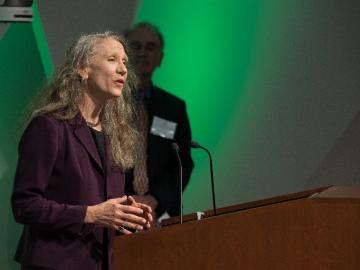
The founder of a startup company who is working with ORNL has won an Environmental Protection Agency Green Chemistry Challenge Award for a unique air pollution control technology.
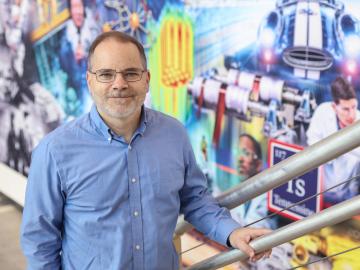
ORNL has been selected to lead an Energy Earthshot Research Center, or EERC, focused on developing chemical processes that use sustainable methods instead of burning fossil fuels to radically reduce industrial greenhouse gas emissions to stem climate change and limit the crisis of a rapidly warming planet.
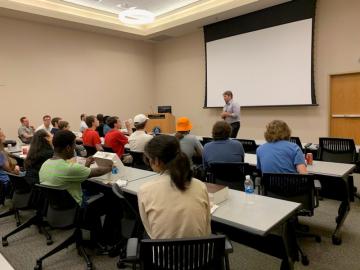
Quantum computing sits on the cutting edge of scientific discovery. Given its novelty, the next generation of researchers will contribute significantly to the advancement of the field. However, this new crop of scientists must first be cultivated.
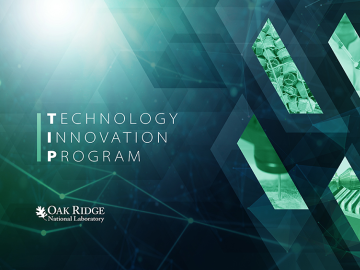
Scientist-inventors from ORNL will present seven new technologies during the Technology Innovation Showcase on Friday, July 14, from 8 a.m.–4 p.m. at the Joint Institute for Computational Sciences on ORNL’s campus.
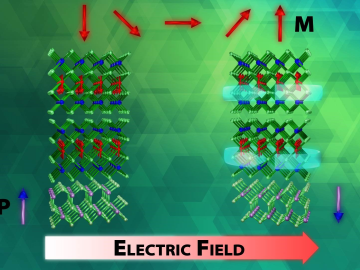
An advance in a topological insulator material — whose interior behaves like an electrical insulator but whose surface behaves like a conductor — could revolutionize the fields of next-generation electronics and quantum computing, according to scientists at ORNL.
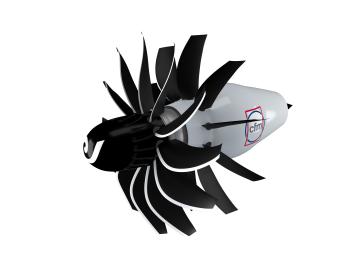
To support the development of a revolutionary new open fan engine architecture for the future of flight, GE Aerospace has run simulations using the world’s fastest supercomputer capable of crunching data in excess of exascale speed, or more than a quintillion calculations per second.
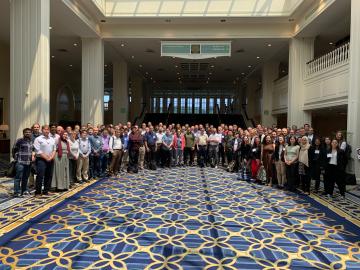
In late May, the Quantum Science Center convened its first in-person all-hands meeting since the center was established in 2020. More than 120 QSC members gathered in Nashville, Tennessee to discuss the center’s operations, research and overarching scientific aims.
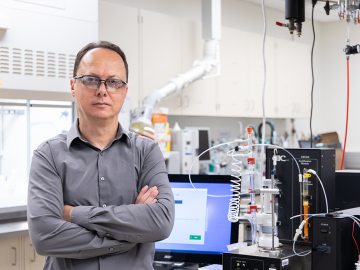
An innovative and sustainable chemistry developed at ORNL for capturing carbon dioxide has been licensed to Holocene, a Knoxville-based startup focused on designing and building plants that remove carbon dioxide
For the third year in a row, the Quantum Science Center held its signature workforce development event: a comprehensive summer school for students and early-career scientists designed to facilitate conversations and hands-on activities related to




